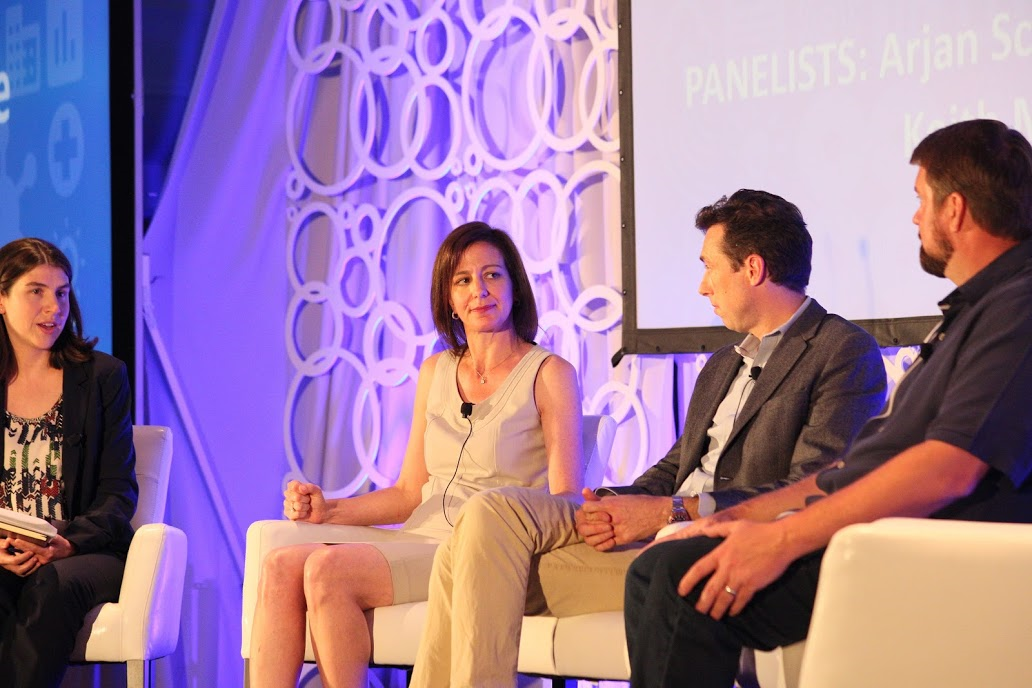Financial Health Means More than Financial Inclusion

Here’s a sobering data point for you, courtesy of the recent EMERGE conference in New Orleans: 138 million people in the United States are financially unhealthy. They are not exclusively from the lower-income brackets, either. In fact, one-third of households with income of $100,000 (or more) struggle to manage their financial lives. They may be over-indebted or underinsured. They may not be able to manage day-to-day expenses, respond to emergencies quickly, or take advantage of opportunities. And most of them do not have adequate savings or pensions for retirement.
There is, in short, a major issue in this country with financial health, one that cuts across income brackets, and that goes beyond the related issue of financial inclusion.
Financial inclusion is the term MetLife Foundation uses to describe our grant-making focus. We aim at ensuring that more of the world’s households and businesses have convenient access to a full suite of quality, affordable financial services, delivered by trustworthy providers who treat them with respect. And financial inclusion is in fact a big issue. Two billion people worldwide lack access to financial services of any kind. Billions more are forced to make do with financial products that are insufficient, overpriced, impractical, unsafe—or all of the above.
Financial inclusion is a “necessary but not sufficient condition” for financial health. As we see in the United States, people may have bank accounts and an array of financial products (in other words, they may be “included”)—but still be financially unhealthy. Along with our grantee partners, the Foundation is currently exploring this relationship between financial inclusion—having full access to all the financial services you need—and financial health—actually using those services effectively to manage your life and achieve your goals. (The process MetLife describes as “managing the ‘IF’ in ‘LIFE’ “ and pursuing more from life.) We’re looking at the ways that consumer behavior, cultural context, product development, marketing, customer-centricity, and other factors all converge to create—or fail to create—financial health.
That convergence was the focus of the EMERGE conference. MetLife Foundation was proud to be a lead sponsor for EMERGE, co-presented by American Banker and Foundation grantee CFSI (the Center for Financial Services Innovation). EMERGE brought together more than 800 senior executives from the financial services industry and beyond to look at financial health, particularly for low- and moderate-income Americans.
The participants explored the connections between physical and financial health. We heard from some of the new financial technology companies who are trying to leverage both the proximity (when is your phone more than five feet away?) of technology in our lives, and our patterns of using it, to create engaging customer experiences that can help improve people’s financial health. Among the high-profile keynote speakers, EMERGE attendees heard from Dan Schulman, the CEO of PayPal, and Robert Putnam, whose books (including Bowling Alone and Our Kids: The American Dream in Crisis) have explored the connection between social fragmentation and economic fragility. MetLife’s own Claire Burns, senior vice president and global head of marketing strategy, was one of the featured panelists in a plenary discussion on Building Resilience: The Future of Insurance.
I participated in a breakout session on the hot topic of how you measure financial health. Conference organizer and MetLife Foundation grantee CFSI wrote about that very topic recently for the “Multipliers of Prosperity” website which MetLife Foundation produces in collaboration with WSJ. Custom Studios. You can read that story here. You might also want to check out CFSI’s eight indicators and see how you would rate yourself:
- Spend less than income. Successfully managing cash flow affects the ability to build savings and be resilient in the face of unexpected events.
- Pay bills on time and in full. Keeping up with bill payments tells whether a person is able to manage cash flow and daily financial obligations.
- Have sufficient liquid savings.The ability to draw on liquid savings is important for coping with unexpected expenses (e.g., car repair) or setbacks (e.g., losing a job).
- Have sufficient long-term savings or assets. Long-term savings are crucial for achieving financial security and taking advantage of opportunities, like a home purchase or higher education.
- Have a sustainable debt load. Keeping debt to manageable levels can protect a person from being consumed by late fees or interest payments, which may lead to further financial difficulties.
- Have a prime credit score. A credit score is not the full story about financial health but it still remains one important piece of the picture. It affects a person’s ability to access affordable credit.
- Have appropriate insurance. Along with sufficient liquid savings, having appropriate insurance allows a person to be resilient in the face of unexpected expenses.
- Plan ahead for expenses. Planning ahead shows that a person is future-oriented and proactively managing his financial situation, behavior that is strongly correlated with financial health
The good news, if we can call it that, about the plight of so many American households is that at least it is front-and-center now. The Consumer Financial Protection Bureau developed a short ten-question quiz (feel free to take this one, too) to gauge financial health. The presidential primary season made it obvious that many Americans feel acutely financially vulnerable. The cover story (“The Secret Shame of the Middle Class”) of the May 2016 issue of Atlantic described how nearly half of Americans would have trouble finding $400 in an emergency. A conference like EMERGE could hardly have been more timely. MetLife Foundation is grateful for the chance to sponsor learning events like EMERGE, and we look forward to continuing to share what we learn.
Evelyn Stark is assistant vice president for financial inclusion at MetLife Foundation. Her career in financial inclusion began in Uganda, where she lived for six years, and has taken her all over the world, most recently to Seattle where she served as senior program officer for the Bill & Melinda Gates Foundation immediately prior to joining MetLife Foundation.

